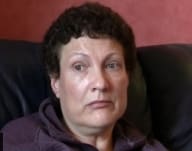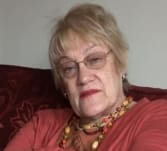
Jenny
Jenny had a difficult childhood and lost her father when she was four. Latterly she had a very stressful working life and was admitted to hospital to have ECT following a suicide attempt. She felt ECT had a buffering effect, but - like antidepressants made no significant impact upon the depression she experienced.
Jenny is a retired consultant and is married with four children. She describes her ethnic background as Anglo-Irish.







